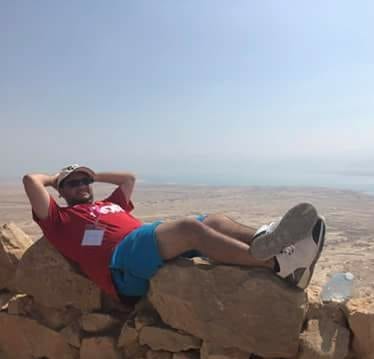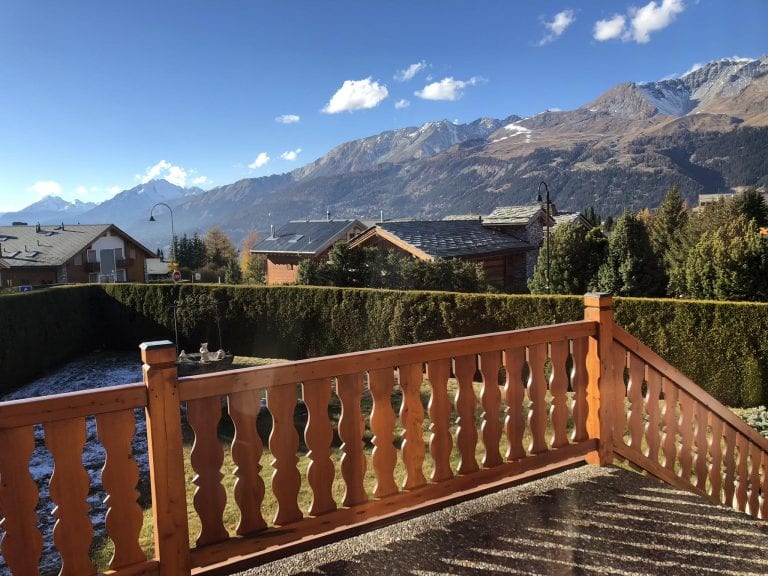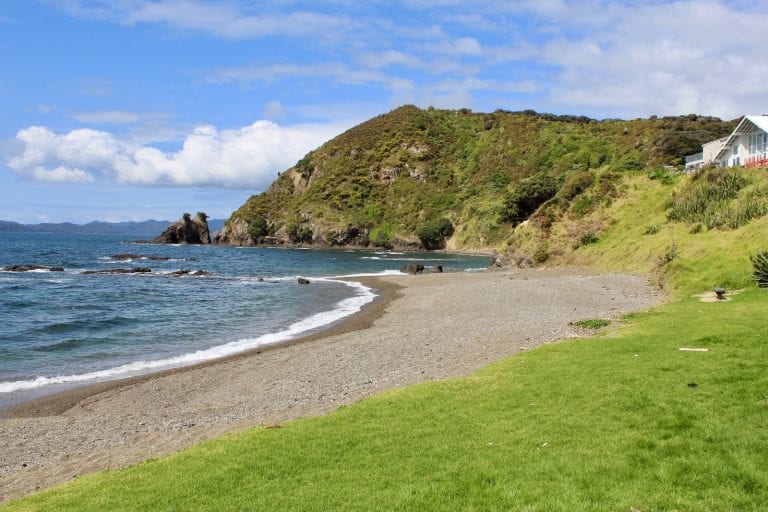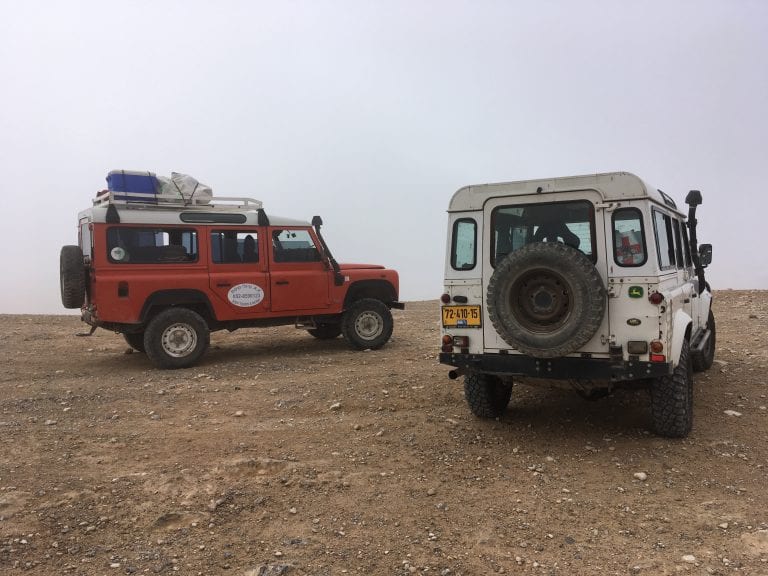By Mikayla Brody
About two weeks ago, I had the amazing opportunity to ride along on a jeep trek throughout the Judean Desert. I packed my peanut-butter-and-jelly-in-a-pita sandwich and headed for the hills. Crammed inside the back of a 90’s banged-up Land Rover, we were tossed back and forth and up and down from the moment we started off of the ‘official’ (aka paved) road. But despite the blatant lack of seatbelts and the convenient flat tire we acquired half way there, it was magical. Looking past the dusty glass windows were miles and miles of rolling earth, speckled with fraying green bushes and the occasional Bedouin child running after our car with his donkey. I imagined Moses and his gang traversing these hills, shuffling around in the heat of the desert, not knowing which way was what, but knowing that their way was the right way.
After 2 hours that seemed more like 4 hours, we pulled up to the starting point of our long-awaited hike. Our guide promised sweeping aerial views and an enchanting ancient monastery perched upon the banks of an ever-surging river. So, we went. We embarked on this journey, tiptoeing around cliff edges and jumping off of baby boulders and occasionally stopping for an obligatory selfie. We eventually reached the lookout point I suppose the guide had been waiting for the whole time. It was like the universe knew we were coming: the temperature was perfect for a light sweater and a light sweat and the birds greeted us with their singing. Outstretched before us were the sweeping views and the enchanting monastery and the river.
The river that cut into the earth resulting in a series of staggering cliffs downwards. The river that the monks of the monastery used to walk down hundreds of steep steps for, just to take a sip. The river that flows all year round – fueled not by clouds, but instead by toilets.
Yep, every single drop of this surging stream of water in this lovely, picturesque setting is pure sewage. This area is known as the Kidron Valley and it runs from west Jerusalem, to east Jerusalem, into the Judean Desert, and pours out in the Dead Sea. The sewage water not only corrupts several coveted holy sites along its route, but also is a major conduit for diseases and an inhibitor for plant and animal growth.
So why would the ‘start-up’, desalination and reclamation nation just let this happen?
According to the Jerusalem Wastewater and Purification Enterprise, about 85% of the sewage in the Kidron Valley comes from East Jerusalem -- a territory under shared jurisdiction between the Israeli government and the Palestinian Authority. And quite unsurprisingly, the two haven’t been able to reach an agreement on how to deal with all of their poop (some pun intended).
Unfortunately, this isn’t a new story. According to the Israel Parks and Nature Authority, over 90% of sewage from the Palestinian towns flows totally untreated into 162 km of rivers and streams. The Kidron Valley is just a big, stinky example of this.
Israel has the money and the proper technology to clean these rivers up, but due to political tensions, these resources aren’t being deployed. Many efforts have been made to discuss joint solutions, but every time there is a disagreement on where, who, or how. With this disagreement, the project falls to the wayside as each government waits for the other to crack. Meanwhile, the problem continues to worsen.
But what if we forgot about borders for a second. What if we forgot about ‘mine’ and ‘yours’. What if we saw this little sliver of the earth as simply earth? Maybe this sounds super hippy-dippy and utopian, but it’s actually the simplest perspective. Whether you identify as a Palestinian or an Israeli, you still live on the same land. You still have to wake up every morning and wash your face and brush your teeth and drink water. You’d still like for your kids to be able to go play in a stream, or at least not die from accidentally getting too close. I mean the drive behind the conflict is a love for the land, right?























